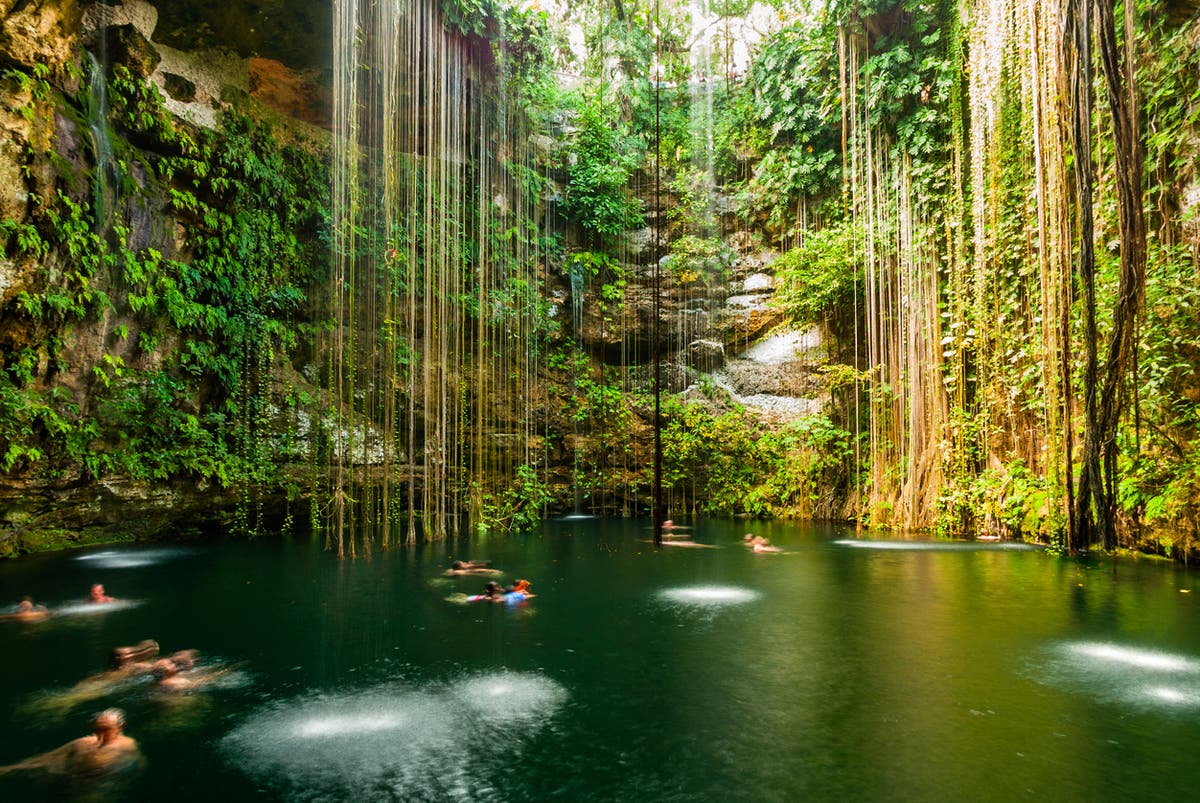This website uses cookies so that we can provide you with the best user experience possible. Cookie information is stored in your browser and performs functions such as recognising you when you return to our website and helping our team to understand which sections of the website you find most interesting and useful.

We’ve heard a lot about the countries with the tightest travel restrictions and entry criteria this year - among them big-trip favourites New Zealand, Australia and Japan.
But which nations are more relaxed on their Covid-related entry rules and domestic restrictions? We take a look at some of the least stringent countries for holiday admin - though it’s worth noting, of course, that this can mean authorities aren’t as hot on tracking and tracing Covid cases.
Of course, travel rules in individual destinations can change at short notice, too, so always check the Foreign Office advice for your destination, and the local tourist board’s website, for the latest rules and guidance on the ground before you book or go.
Mexico
This Latin American hotspot has next to no entry requirements for getting in - no pre-travel testing or quarantine required - though its major airports do have thermal screening in place. You have to pre-register on the Mexico Vuela Seguro platform before travel, which generates a QR code to be scanned on arrival - and if you’re staying in a resort they might ask you to fill in a health form.
The country has a four-tier system showing where rules are strictest, but all but five states are currently listed as green (minimum restrictions). Of the yellow states, only Baja California is typically visited by tourists. You’ll need a pre-departure test before you fly home to the UK, but Mexican resorts are helpful in organising and offering these onsite.
Public transport is largely operating in full, though you’ll need to wear a mask on all forms - and some attractions (such as Frida Kahlo’s house in Mexico City) are limiting capacity, with tickets needing to be booked in advance. It’s common to wear masks in crowded city spots, but they aren’t enforced in the countryside or beach. Other than that, eat tacos, drink tequila, and be merry!
Split, Croatia
(Getty Images/iStockphoto)
Croatia
In terms of Europe, Croatia has some of the least intimidating entry rules: essentially, you can get in with either proof of double vaccination (an NHS Covid Pass will do) or a negative PCR test result from the previous 48 hours. You must have had your second jab between 14 and 365 days before travel for the former to be valid, though.
You also need to complete an online health form, but then you’re golden. Once there, off-season accommodation is affordable (we spotted a five-star hotel in the capital, Zagreb, for £90 room only in Jan and Feb) and the cities and lake regions are charming and warm-welcoming year-round. However, on the ground rules are a little tighter: masks must be worn in all public, enclosed spaces, though this summer’s curfew for bars and restaurants has been scrapped.
Turkey
This sultry Mediterranean spot is another ‘this or that’ destination for entry requirements - you can show proof of double vaccination to enter, or a negative PCR test result taken in the past 72 hours or a lateral flow result taken within the past 48 hours. So only the unvaxxed need fork out for a test, and they won’t have to quarantine. Turkey will also accept proof of recent recovery. There’s a small chance of thermal checks and random testing on arrival at the airport, but as of March 2020, Brits don’t need to pay extra for an e-visa.
Though Turkey’s best known for its summer hols scene, some flights do continue into winter - including to its historic northern treasure-trove, Istanbul (check Skyscanner: Pegasus and BA are both operating UK flights at present). On the ground, most venues, restaurants and attractions are open as normal - but some modes of public transport and entertainment venues (theatres, cinemas, concerts) require you to show proof of double vaccination.
Budapest’s Chain Bridge
(Getty Images/iStockphoto)
Hungary
In terms of trav-min, proof of double vaccination will get you into Hungary with zero tests, while children under 18 accompanying double-jabbed adults are exempt from any travel restrictions at all. Unjabbed adults over 18 do need a negative PCR test result taken within the past 72 hours. Once there - digging into bucket-list spots such as Budapest or doing something quirkier, like spelunking in Aggtelek National Park - you won’t find much to disrupt your holiday activities.
You’ll be expected to wear masks on public transport, in shops, theatres and museums, but there’s no sign of vaccine passports being brought in for hotels or public venues. Since much of your Budapest checklist consists of outdoor venues - from steaming mineral baths to roofless ruin bars - you’re also likely to feel less anxious about being packed into sightseeing spaces.
Sri Lanka
One of the few Asian countries accepting British travellers at this stage, India’s tranquil neighbour does require a PCR test result within 72 hours before arrival, and unvaccinated travellers must stay within a quarantine zone (“flexible bio bubble”) for the first eight days. Unjabbed visitors can even visit selected sights under the “bubble” arrangement, but can’t tour freely. But double-jabbed folks can get on the road, exploring this beautiful island’s beaches, temples, unique cuisine and tea plantations.
On the ground, parties and events are still banned, and most people wear face masks in busy public areas - some hotels may ask you for a recent PCR test result, so check with yours before booking and travelling. And it’s luscious in winter, with peak daily temperatures in the high 20s.



 Africana55 Radio
Africana55 Radio 
